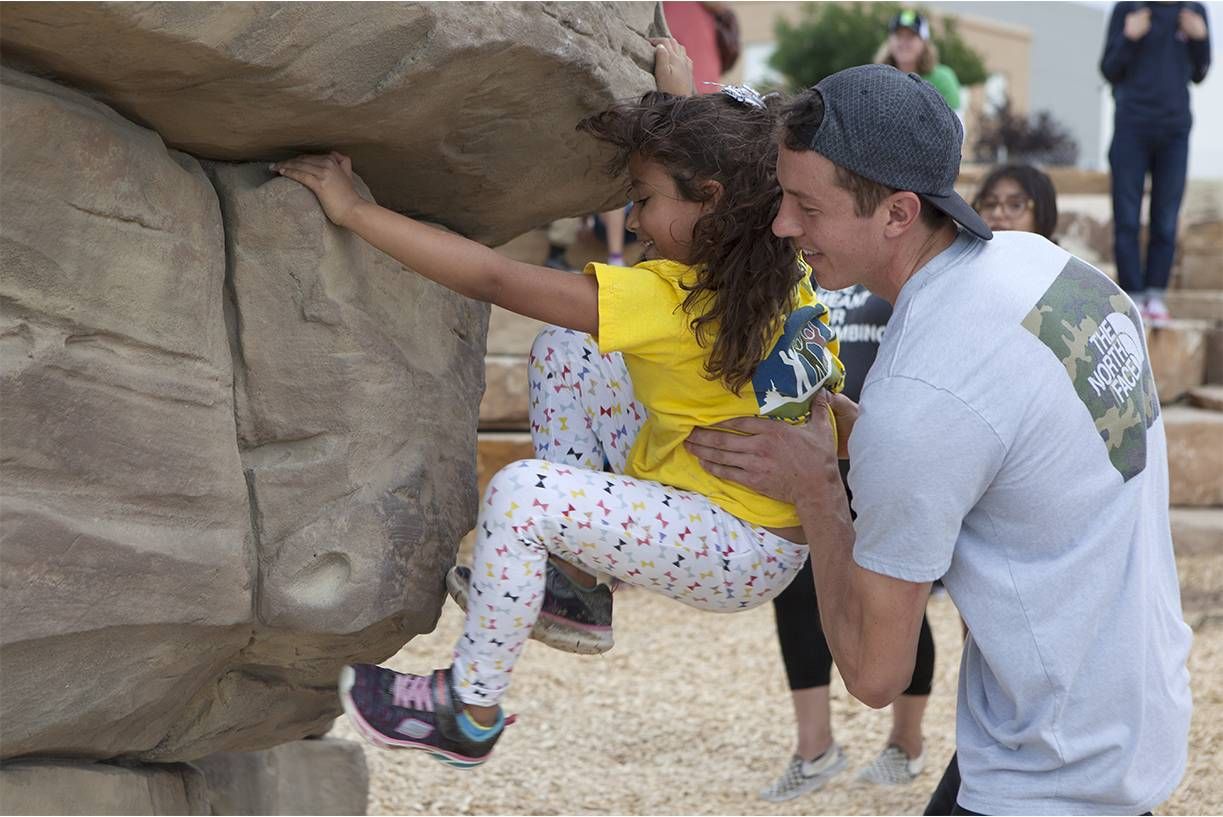When my son was born, I remember being shocked at how small and fragile he seemed. Within weeks, he had proven me wrong. He was solid, and firm, and had incredible core strength that was notable even to his pediatrician. So I began to let my guard down. Once Shep could hold his head up on his own, my husband started to be a little more rough-and-tumble with him. Stephen would toss him into the air, catch him as he came down, and play this game again and again and again. Shep giggled. He loved the thrill of floating mid-air and falling safely into his daddy's arms.
Rory came along when Shep wasn't quite two. She, being a girl, showed how different her personality was from his from day one. He's a bit more insistent - she's a bit more laidback. He's moody - she's pretty even-keeled and generally happy. When she's not happy, she will let it be known - but she settles easily. Still, even though they are quite unique individuals, we try to treat them relatively the same. Fairness and equity is our goal, because it's important to us that they both know their worth - which is, of course, immeasurable.
Despite our efforts, I notice that we do treat our kids differently from one another. While we were tossing Shep up in the air freely, we rarely toss Rory about. I'm not sure my husband ever has, actually, now that I think about it! When she falls, we're a bit more quick to soothe her. I've noticed this pattern of...hmm...is coddling the right word? Since I've noticed it, I'm trying to stop myself from rushing to her when she bumps her head.
Rory is cruising now and trying to stand up on her own. This inevitably means we're entering the phase where she falls and falls and falls and falls many more times than she successfully stands. It's going to be hard, to watch my daughter get bumps and bruises as she tumbles through this time in her life. My motherly instincts tell me I need to protect her from any harm, from any pain. Was I then a bad mother to my son, by taking a bigger risk that he might be hurt, when I tossed him in the air?
No. No, I wasn't. I was just following the conditioning I've been indoctrinated into believing. My whole life, it was clear that boys were stronger - they could take more physical risks and come out okay. Girls, on the other hand, were fragile and needed to be protected. We, girls, were not supposed to play rough or get dirty. In a way, despite my best intentions, I've built this mindset into the way I view my own kids. It's a struggle, to fight against myself and let my daughter fall on her butt. To respond in the same way I did when my son fell on his butt - don't jump up from my seat, don't flash fear over my face - just tell her to brush it off. Distract her from the painful moment by clapping and pretending to be glad she "Went Boom!"
If I don't let my daughter fall now, how will I bear letting her fail later? Home, with family, should be the place where kids know that it's safe to fail, to make mistakes. This is where they learn what risks are acceptable to take and what kinds of risks are inadvisable. Studies have shown that men are less risk-averse than women - and the studies conclude it's likely a mix of nature and nurture. Testosterone might fuel some of that risk-taking, but there's also the influence of our conditioning. It starts early, y'all. When we let our boys fall and celebrate their bravery, but we rush to help our daughters, we're sending a clear message.
Only one of you should take risks. Only one of you should show courage. Only one of you should lean into the fear. Fear will crush her, but not him.
If these last few weeks have taught women anything, it's that we are braver than we thought. FDR said it best: "The only thing we have to fear is fear itself."
How have you encouraged your daughter to take risks? Do you notice how boys and girls are treated differently? How do you help upset that imbalance? Tell me your thoughts on how to combat this mindset on Twitter @pi3sugarpi3 with #GirlsAreBrave

